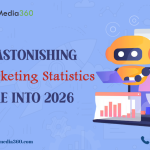The Impact of GDPR on Digital Marketing

In May 2018, the European Union implemented the General Data Protection Regulation (GDPR), a set of regulations designed to protect the privacy and data of EU citizens. The GDPR has had a significant impact on businesses around the world, particularly in the area of digital marketing. In this article, we’ll take a closer look at the impact of GDPR on digital marketing and what businesses can do to stay compliant.
Understanding GDPR
The GDPR is a comprehensive set of regulations that govern the collection, processing, and storage of personal data. The regulation applies to all businesses that process the data of EU citizens, regardless of where the business is located. Personal data includes any information that can used to identify an individual, such as name, email address, phone number, or IP address.
Consent and Transparency
One of the key provisions of GDPR is that businesses must obtain explicit consent from individuals before collecting or processing their personal data. This means that businesses must clearly explain how they will use an individual’s data and give them the option to opt-out. Additionally, businesses must provide individuals with easy access to their data and allow them to request that their data be deleted.
Impact on Email Marketing
Email marketing has one of the most heavily impacted areas of digital marketing by GDPR. Businesses must obtain explicit consent from individuals before adding them to their email lists. This means that businesses cannot use pre-ticked boxes or assume consent based on previous interactions. Businesses must also include an opt-out option in all email communications.
Impact on Social Media Advertising
Social media advertising has also impacted by GDPR. Social media platforms must obtain explicit consent from users before collecting or processing their personal data for advertising purposes. Businesses that use social media advertising must ensure that their targeting methods comply with GDPR.
Impact on Data Collection and Analytics
The GDPR has also impacted how businesses collect and analyze data. Businesses must obtain explicit consent from individuals before collecting their personal data, and they must have a legitimate reason for doing so. Additionally, businesses must ensure that the data they collect is accurate and up-to-date and that it is processed securely.
Penalties for Non-Compliance
The penalties for non-compliance with GDPR can be severe. Businesses that violate the regulation can face fines of up to 4% of their global revenue or €20 million, whichever is higher. Additionally, businesses that do not comply with GDPR risk damaging their reputation and losing the trust of their customers.
Tips for Staying Compliant
To stay compliant with GDPR, businesses should start by conducting an audit of their data collection and processing practices. They should ensure that they obtain explicit consent from individuals before collecting or processing their personal data and that they have a legitimate reason for doing so. Additionally, businesses should implement data protection measures such as encryption and two-factor authentication.
Conclusion
The GDPR has had a significant impact on digital marketing, and businesses must take steps to ensure that they are compliant. By understanding the regulations and implementing best practices, businesses can continue to use digital marketing to reach their target audience while protecting the privacy and data of their customers.
In conclusion, the GDPR has changed the way businesses approach digital marketing, particularly in the areas of email marketing, social media advertising, and data collection and analytics. By staying compliant with the regulations, businesses can protect the privacy and data of their customers while continuing to use digital marketing to grow their business.






